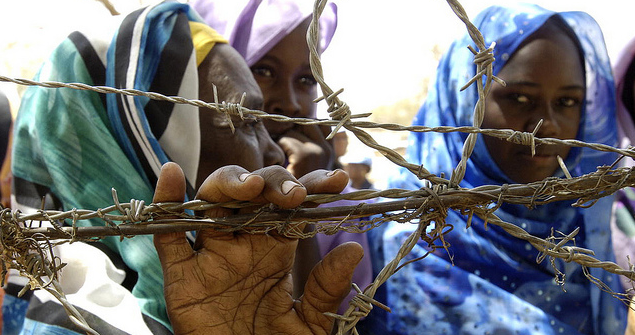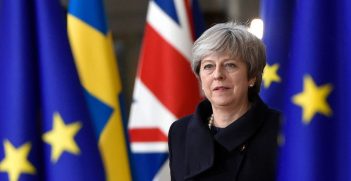Sudan Election Consolidates Bashir’s Hold on Power

Sudan’s President Omar Hassan al-Bashir, under whose rule hundreds of thousands of people in Darfur have been killed, was re-elected on 27 April 2015. The country’s recent elections will have little effect on its current trajectory, although there appears to be a shift in Bashir’s relations in the Middle East.
Background
Sudan’s recent elections resulted in President Omar Hassan al-Bashir being re-elected, continuing his 26-year rule. Over the course of his rule, hundreds of thousands – mainly from the Fur, Masalit and Zaghawa ethnic groups – living in the Darfur region have been killed, and further millions displaced as part of an on-going genocide in the region. Bashir has, consequently, been charged by the International Criminal Court with five counts of crimes against humanity, two counts of war crimes, and three counts of genocide against the people of Darfur. The latest elections saw Bashir claim 94 per cent of the vote, with reports of a low turnout due to widespread calls to boycott the elections following the arrests and harassment of members of opposition groups. As a result, the elections have been widely criticised as nothing more than a political charade and an attempt to legitimise Bashir’s continuing rule.
Comment
Minutes leaked from a Joint Military and Security Committee meeting held in Khartoum on 31 August support the claims of corruption relating to the elections. During the meeting, Presidential Advisor Mustafa Osman Ismail allegedly stated that the elections will give the government five more years of legitimacy and spoke of efforts to convince opposing parties to take part in the election to ensure its legitimacy. Deputy Chairman of the National Congress Party, Ibrahim Ghandue, allegedly spoke of efforts to influence the elections including inducements of around US$500 million to persuade the Popular Congress Party to participate in the process. Although the authenticity of the document is questionable, corruption allegations against the NCP are widespread. Given the alleged corruption and questions surrounding the legitimacy of the elections, it is unlikely that there will be any change in government policy.
There does, however, seem to be a shift in Bashir’s allegiances in the region. The decision to take part in the Saudi-led coalition against Houthi rebels in Yemen was surprising, and can be seen as an attempt to develop closer ties with Riyadh. This will be necessary if Sudan is to receive financial aid from Saudi Arabia, which is needed as Khartoum is becoming more dependent on external support after losing 75 per cent of its oil reserves to South Sudan after the split in 2011 and due to ongoing sanctions. This appears to indicate a shift in Khartoum’s relations with Iran, which is surprising given the support Iran has provided since Bashir seized power.
Deteriorating relations with Iran may, however, have played a role in Bashir’s apparent shift towards Saudi Arabia. From being traditionally strong, Iran-Sudan relations took a fall in September 2014 when Sudan ordered Iran to close its cultural centres and expelled the Iranian diplomats who ran them. A spokesperson for Sudan’s Ministry of Foreign Affairs said that the decision was made in response to the increasing influence of Shi’ite Islam in Sudan. His Iranian counterpart, however, accused extremists of attempting to harm the relationship between the two countries while analysts pointed to pressure from Saudi Arabia. As noted in a previous article, however, the aforementioned minutes suggest that the closure of Iran’s cultural centres was done with the knowledge and agreement of the Iranian Government in an attempt to continue the relationship with Iran while simultaneously developing a closer relationship with Saudi Arabia. This, however, seems less likely now given Khartoum’s involvement in the Saudi-led coalition against the Houthi rebels, which runs counter to Iranian objectives in the region. The minutes also speak of Sudan providing the Houthis with weapons while Saudi Arabia was pressuring them to withdraw support. This is also very unlikely given the extent of the Sudanese contribution to the campaign and the swing in foreign policy this would require – from actively supporting the rebels to participating in a campaign against them.
The full implications of Bashir’s commitment to Saudi Arabia on Sudan-Iran relations are yet to be seen. There would need to be significant financial inducement from Saudi Arabia for Sudan to, essentially, abandon its relations with Iran. Such a scenario appears unlikely given Iran’s historical support to Sudan. It is in Khartoum’s best interests to maintain strong relations with both Iran and Saudi Arabia and, therefore, unlikely that Sudan’s commitments in Yemen will render this option impossible since Iran’s support for the Houthi rebels remains unclear and covert for the time being.
Jarryd de Haan is a research analyst at Future Directions International’s Indian Ocean Research Programme. This article was originally published in Future Directions International on 29 April 2015. It is republished with permission.





